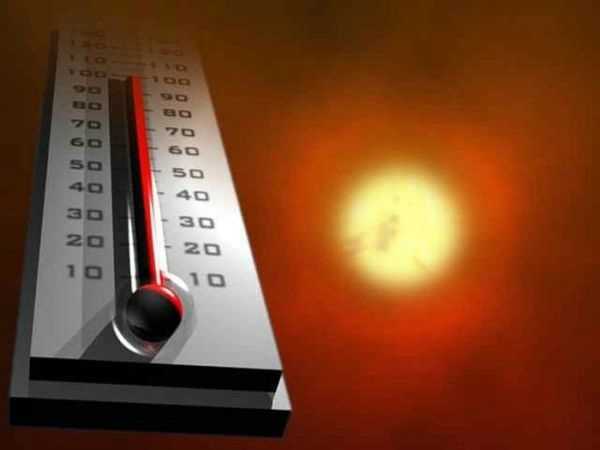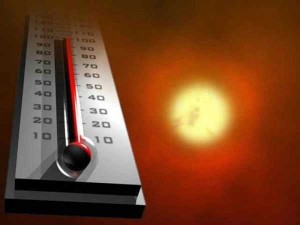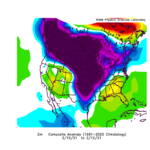In this month’s issue of the journal Science, two studies appear. The first shows evidence that increased conflict is a consequence of changing climate. The second reveals that climate change is occurring at a rate 10 times faster than at any time in the last 65 million years. It is a coincidence that these two studies have come out at the same time. But the messages of both speak to an enormous challenge for humanity in the 21st century.
In the 20th century world wars were fought over “lebensraum” and resources. German xenophobia and racist policies fueled a European and North African conflict while Japan fought to dominate South and East Asia in pursuit of resources and markets. Tens of millions died not just on battlefields but in a murderous descent to barbarity the world had not seen in hundreds of years.
Here in the 21st century we have moved away from global warfare. In fact the world has never been more at peace with most conflicts confined to regional battles such as the Syrian civil war. But will this pattern hold in light of climate shifts, disrupted ecosystems and declining natural resources? One of these two studies says “no.”
Climate change is correlated to increasing domestic, ethnic, police, civil and international violence and conflict. Past studies have correlated the El Nino or Southern Oscillation with global patterns of civil conflict. But this latest study links drought and higher mean temperatures to spikes in domestic violence, assaults, murders, ethnic violence and civil wars from Australia to Europe to the United States, Africa and China. The lead author, Solomon Hsiang, a postdoctoral fellow at Princeton University and now an assistant professor of public policy at UC Berkeley, states: “We collected 60 existing studies containing 45 different data sets and we re-analyzed their data and findings using a common statistical framework. The results were striking.” Increased personal violence. Increased intergroup violence. And increased government breakdown. The study’s conclusions: A 2 Celsius (3.8 Fahrenheit) rise in global temperature will result in a 50% increase in the rate of intergroup conflicts.
In the second study out of Stanford University, researchers projected that the rate of climate change in the next century could lead to drastic changes affecting the acidity of oceans, sea levels, and weather patterns. The scientists looked at the last time the planet experienced a 5 Celsius (9 Fahrenheit) rise in temperatures. This occurred 20,000 years ago with the end of the last Ice Age. During that transition as the ice retreated northward plants and animals migrated as well. In geological terms the time period was relatively short with terrestrial forests reappearing in a matter of centuries in places where ice several kilometers deep once covered the landscape.
The Stanford research team reviewed two-dozen climate models to predict potential outcomes by the end of the 21st century. Their conclusions: temperatures will increase 5 to 6 Celsius (9 to 10.8 Fahrenheit) degrees in the Northern Hemisphere.
If a 2 Celsius rise results in a 50% increase in intergroup conflicts what is the potential level for violence in a world where temperatures rise 5 or 6 Celsius?
Two studies. Together it is hard to ignore their combined implications.
















